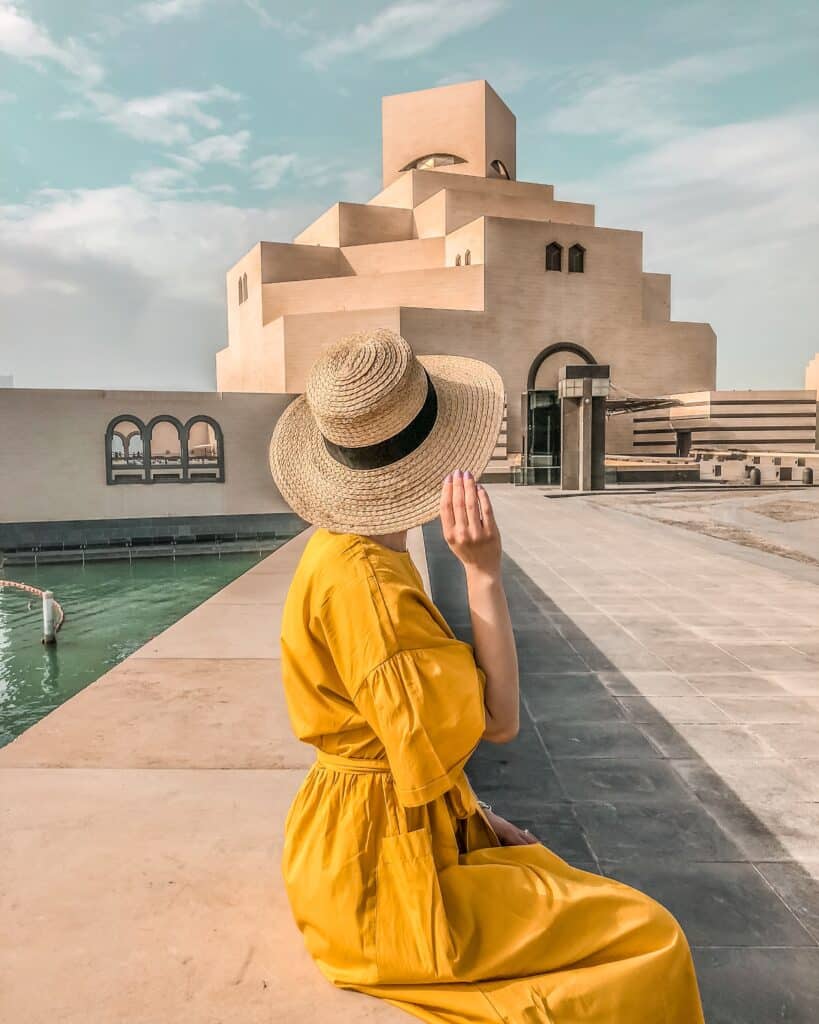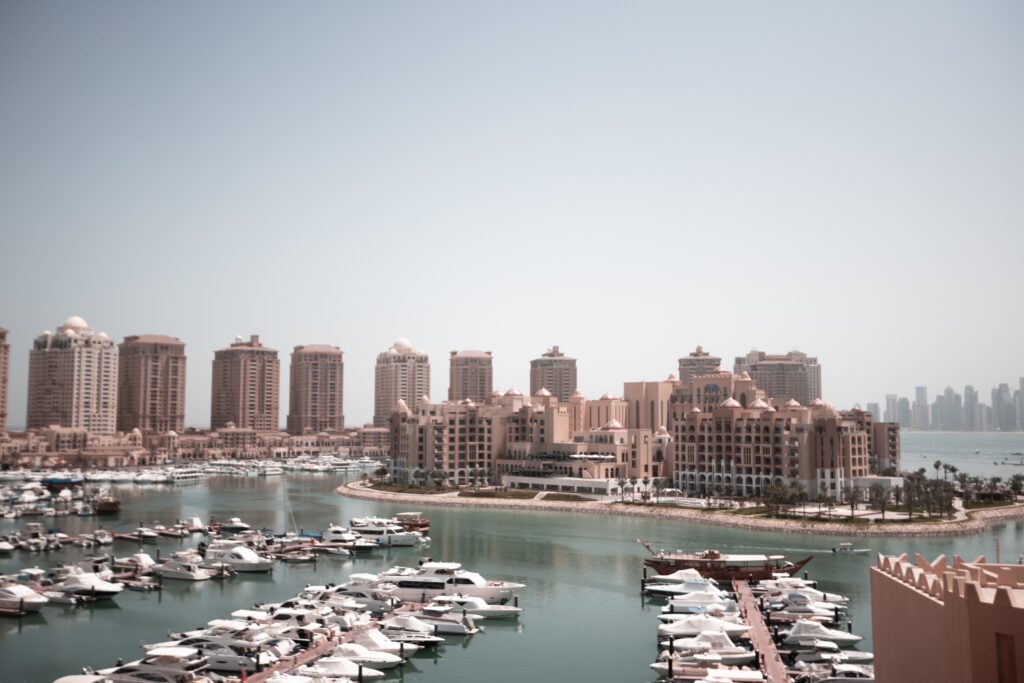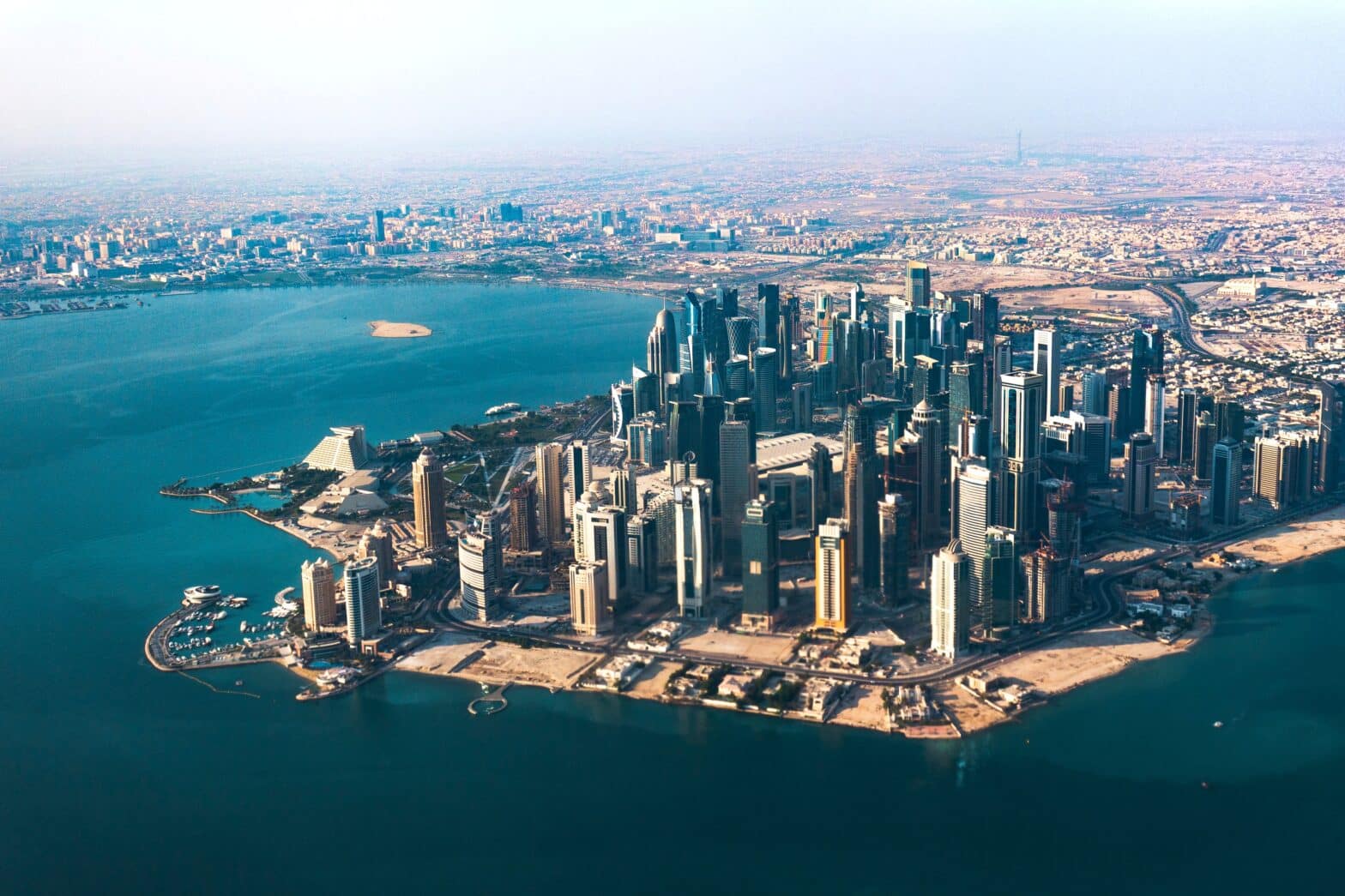Nestled between the Persian Gulf and the Arabian Peninsula, the monarchy of Qatar has, over several years, been attracting a legion of expatriates. The oil and gas giant and its modern capital, Doha, have much to offer to expats: excellent career opportunities, tax breaks, a great healthcare system, a unique blend of tradition and modernity and desert and seascapes to titillate your senses.
Here is a brief preview of your new life in Qatar; as a family, couple or single expat!
Why moving to Qatar? The pros and the cons
The advantages
- Remarkable economic growth
- Wide range of professional opportunities for expatriates, attractive salary in some sectors
- Generally high salaries
- Opportunities to discover a new culture and mingle with expatriates from all backgrounds (especially in Doha)
- Comfort: The country offers a very comfortable lifestyle and is one of the greatest places to live in Middle-East
- Safety: Qatar is one of the safest countries in the world. With its low crime rate even as a single woman you can feel safe in Qatar.
- Cleanliness!
- Beautiful and diverse landscapes that will delight beach lovers and desert enthusiasts alike.
- Doha’s multicultural environment
The disadvantages
- High cost of living, especially if you are moving from a non-western country
- A desert climate: temperatures in Qatar are generally quite high and rainfall low
- Qatar remains a predominantly conservative society, despite the apparent modernity and cosmopolitanism of the capital which can be a drawback for some.
The expatriate woman in Qatar
Qatar may be steeped in tradition, but society is evolving and diversifying. As an expatriate woman, it is entirely possible to work and advance your career in a wide range of sectors.
As far as clothing is concerned, you are not required to wear the abaya as in Saudi Arabia. You can dress as you wish but be careful not to show too much of your shoulders and knees. Women are used to choosing loose-fitting outfits.
For all expatriates, please be aware that alcohol consumption is prohibited except in licensed establishments such as clubs and hotels.

Visa requirements in Qatar?
Depending on your profile and reason for relocation, several visa options exist in Qatar. If your expatriation project is job-related, you will need a work visa, Business visas are reserved for very short stays. And it is impossible to work in Qatar without a sponsor if a local employer agrees to take you on as an employee. It is their responsibility to apply for a work visa on your behalf.
Once you have your work visa, you will need to apply for a Qatar ID (QID) or residence visa from the Qatari immigration authorities. There are also two types of work visas for people wishing to set up their own businesses: the investor visa and the entrepreneur visa.
In all cases, to be fully apprised of the law and regulations, you should contact the Qatari embassy or consulate in your home country.
Working in Qatar
Thanks to a booming economy, Qatar’s business environment is favourable to business and the local job market is very dynamic. The country offers a wide range of career opportunities for expatriates in a number of sectors. For example, in the construction industry is developing at breakneck speed as a result of major urbanization projects. As one of the world’s leading producers and exporters of natural gas and oil, the energy sector is a major source of income and development. Other sectors of interest and rapid growth are telecommunications; finance; the media; and the booming health sector with a high demand for healthcare professionals. It is worth consulting the government’s website for information on the country’s various economic initiatives.
Workers
Qatar has enacted labour laws covering various aspects of workers’ lives. For example, working hours are set at 48 hours per week and minimum wage at QAR 1,000 for all sectors.
In addition to job search websites such as LinkedIn and Indeed, you can visit local/regional websites such as Bayt and Gulf Talent or register with recruitment agencies to find a job.
Entrepreneurs
It is possible to set up your own business in Qatar, especially as the country is becoming increasingly open to foreign investors. It is, however, important to be aware of the regulations governing the establishment of international companies. Procedures and requirements vary depending on the type of structure chosen. For example, to set up a limited liability company (SARL), you will need to find a Qatari partner to hold 51% of the company’s shares.
Note that if you set up your business in Qatar’s Free Zones, you can benefit from favourable measures such as taxes exemptions and the ability to own 100% of the shares in your company.
Housing
Qatar’s housing options mainly comprise apartments/townhouses of various sizes; furnished or unfurnished apartments located in residential complexes or buildings, and family villas. Residents often have access to services and facilities such as swimming pools and sports fields. For maximum convenience, some expats opt for fully furnished apartments, which include services such as cleaning and maintenance. Others (especially families) appreciate the community spirit that exists in gated communities.
It is not uncommon for Qatari employers to provide accommodation for their employees with accommodation as part of the employment contract. This is often the case in the energy or hotels sectors.
Rental prices vary according to location, size and facilities offered. You can expect to pay between QAR 7,000 and QAR 18,000 a month for a three-bedroom apartment and between QAR 12,000 and QAR 30,000 a month for a four-bedroom villa. If your employer doesn’t provide accommodation, contact local estate agents and don’t hesitate to negotiate rents.
As an expat, it is also possible to buy a freehold property, but only in investment areas such as The Pearl Qatar or Lusail City.

NB: Registration with the Ejari system[sr1] is compulsory for all rental contracts.
Qatar’s Tax System
Since 2018, income earned in Qatar by resident individuals or legal entities is taxed at 10%. This applies to individuals who are permanent residents of the country or who spend at least 183 days in the country in a calendar year. However, certain types of income, such as pensions and certain salaries, wages and allowances are exempt from income tax.
High cost of living
Although Doha may not yet rival Dubai and Abu Dhabi as the most expensive cities in the region, the cost of living in the small Gulf monarchy is quite high, especially when it comes to housing and education. If you are having children, a private school can be very expensive. Numbeo estimates the cost of living for a family of four in Qatar at €2881 per month excluding rent.
One of the best healthcare systems in the region
Qatar has one of the best healthcare systems in the Middle East. Both public and private healthcare facilities are equipped with the latest technology, healthcare professionals, most of whom are expatriates trained abroad, are highly qualified, and patient care is highly efficient. Expatriates take out international health insurance to ensure they are covered in all circumstances, in Qatar as elsewhere in the world.
Top attractions in Qatar:
- In Doha: explore the Souq Waqif, stroll along the Doha Corniche and visit the Museum of Islamic Art.
- Visit Lusail, a coastal metropolis close to the capital, with its stadium, Katar Towers and marina.
- Take a trip to Banana Island, the Qatari Maldives, accessible in 30 minutes by catamaran from the capital.
- Head to Khor Al Adaid to explore the desert landscapes of southern Qatar all the way to the ‘inland sea’.
- Immerse yourself in the history of the monarchy’s pearl mining past at Al Zubarah
- Escape to Bin Ghannam Island, ‘the purple island’.
- Explore the amazing rock engravings of Al Jassassiya near Al Maroona
Foyer Global Health offers international health insurance for expatriates and companies in Qatar. Discover the advantages of our offer and contact our teams to find out more.
